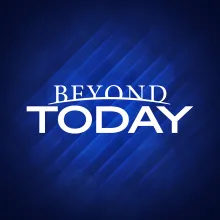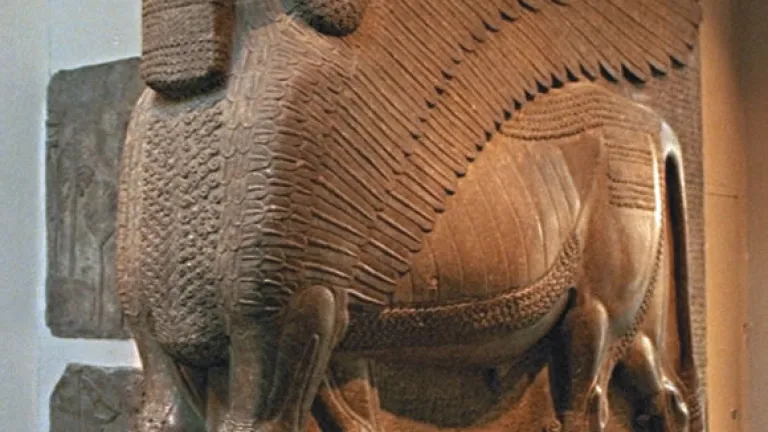2 Chronicles 30:1-31:1 and Related
Hezekiah's Passover and eradication of paganism, destruction of high places and the bronze serpent
Hezekiah's Passover
The cleansing and reconsecration of the temple and priesthood wasn't finished until the 16th day of the first month of the Hebrew calendar (2 Chronicles 29:17). This was during the Days of Unleavened Bread, two days after the date for the Passover, which was to be kept on the 14th day of the first month (see Leviticus 23:4-8). So Hezekiah and the people had missed the Passover and the start of the Feast of Unleavened Bread.
But in Numbers 9:9-12 God had made provision for postponing the Passover to the 14th day of the second month for those who were unable to observe the regular Passover because they were far away on a journey or ritually unclean. Hezekiah "and his leaders" applied this rule to the priests, since they were not yet all consecrated—and by extension to the people, since they needed the priesthood (2 Chronicles 29:2-3). Thus, the festival would be observed this year in the second month. It should be noted that among Hezekiah's leaders was probably Isaiah the prophet, who was no doubt receiving instructions from God during this time.
Hezekiah even extends an invitation to those in the northern kingdom to join the people of Judah in keeping the Passover and participating in this religious revival. As in the previous chapter, we again see the phrase "all Israel," now with the addition of "from Beersheba to Dan" (verse 5), which was a common way of denoting the whole land of Israel prior to the divided monarchy—Beersheba being located in the far south and Dan being the extreme north. Though most of Israel had been taken captive in 733-732 B.C., Israel's final deportation had not yet taken place and there was still a sizeable remnant population left at this time as part of the kingdom ruled by Hoshea, himself a vassal of Assyria.
Notice that the runners from Judah go only as far north as Zebulun (verse 10). This was evidently the northernmost territory of the remnant state of Israel at this time, the inhabitants of Naphtali to the north of Zebulun having already been deported by Tiglath-Pileser III (compare 2 Kings 15:29). Indeed, this is actually more proof that Hezekiah's Passover should be dated to the time before Israel's final deportation in 722 B.C. rather than after it.
Sadly, despite the invasion and captivity the Israelites have already suffered at this point, most of those who are left in the land do not take warning and repent. The people of the northern kingdom are so far from God that very few are interested in observing God's Passover. Indeed, they mock the messengers. But a few do respond (2 Chronicles 30:10-11).
Then came the actual observance of the Passover. While Hezekiah and the priests were very careful to do all that was required in the law of God (verse 16), some in the assembly, particularly those who did come down from the northern tribes, were not appropriately prepared for it. While the Passover was normally slain by the heads of household, and the priests only sprinkled the blood on the altar, in this case the Levites killed the Passover for those who were not clean (verse 17).
Even then, eating the Passover was technically not permitted (compare Numbers 9:6-7), but because of the special circumstances, and the fact that this was already the second Passover, Hezekiah prayed that God would look on the hearts of the people and forgive this transgression. And God did, "healing" the people—that is, their relationship with Him (2 Chronicles 30:18-20). The people also went on to keep the entire Feast of Unleavened Bread in the second month—and, moved by the religious fervor and revival, went on to keep yet another seven days of feasting and rejoicing.
Notice the emphasis on the joyous and zealous attitudes of the people: "who prepares his heart to seek God" (verse 19); "singleness of heart" (verse 12); "with great gladness" (verse 21); "with gladness" (verse 23); "great joy" (verse 26).
It is somewhat revealing to note that such major observances of the festivals at Jerusalem, while mandated by God, were not common during the monarchy. We are told that such a celebration had not taken place since the days of Solomon (verse 26). And a later Passover by Josiah is described as being unlike anything since the days of Samuel (2 Chronicles 35:18).
Eradicating Paganism
As the people returned home from two incredible weeks of spiritual recommitment and rejuvenation, they proceeded to destroy pagan shrines and images "until they had utterly destroyed them all"—even throughout the territories of Ephraim and Manasseh in the northern kingdom (2 Chronicles 31:1). This was a remarkably bold undertaking fraught with danger. For since only a few from the northern kingdom had responded positively to Hezekiah's invitation, this surely would not have gone over well there at all.
Hezekiah is praised for at last removing the high places, or pagan worship sites, from the land (2 Kings 18:4)—which, as was often lamented, even numerous righteous kings before him had failed to do. And, surprisingly, we also see him being praised for destroying something that God had told Moses to make. The bronze serpent had become an idolatrous image that people worshiped. So, as it had outlived its intended purpose and was now inextricably linked with sinful idolatry, a decision was made to destroy it. Indeed, it is possible that God Himself gave the order through Isaiah or through Hezekiah consulting the high priest with the Urim and Thummim.




Beyond Today Bible Commentary: 2 Chronicles